#배움이 짧아서 모르겠어
Text
千山暮雪 我孤翼只影向誰去啊?
Snow on top of mountain coloured sunset, My shadow only has one wing of pair, where to, with who?
From 元好問 (Yuan haowen), 摸鱼儿·雁丘词 (mo yue er • yan qiu ci). The back story of this praise is; the poet hunted a pair of while geese. One day one of the goose died. Then the left goose soon died after its pair. The poet felt sad, so he buried them and made this poem for a pair of geese. 雁丘 means geese grave.
渺万里层云,千山暮雪,只影向谁去?
Cloud lays a long distance, Snow on top of mountain coloured sunset, a shadow, which lost its pair, head where?
Basically, the poem sings about love as a pair. Because of their love so deep, the pair even shares death.
This is mentioned also in 神雕侠侣(The Return of the Condor Heroes) by 金龍(Jin yong). It's meaning may be a spoiler who hasn't read, so I would just say the praise "千山暮雪,只影向谁去" sums the story.
#山河令#word of honor#shan he ling#shl#산하령#wenzhou#溫周#어려운 고서를 많이 가져다 썼네#살면서 처음 보는 내용인데 유명한가봐#안구사#원호문#元好問#雁丘詞#배움이 짧아서 모르겠어#너네 그거 사랑이야#ep 6
20 notes
·
View notes
Text
這步法 飄颻兮若流風之廻雪 髣髴兮若輕雲之蔽月
Your step is like a snowflake flew with breeze, a moon covered with faint clouds.
洛神賦 (luò shén fù) by 曹植 (Cáo zhí) in 曹魏 (Wei dynasty), who is one of 曹操 (Cao cao)'s son. When it was written, 曹操 had died and 曹丕(Cáo pī; 曹操's second son) were enthroned. 曹植 was famous with his literary talent. Because of all the fiasco with usurpation of 漢(han), 曹植 was afraid he would die of his brothers hands.
曹操 is famous being suspicious about everything and 曹丕 is his son. The general story of this peom is about a beautiful lady, but it actually meant glorification of 曹丕. But there's another interpretation that 曹植 was missing 曹丕' wife, 文昭皇后(wén zhāo huáng hòu; 甄氏:zhēn shì). Because the brothers didn't get along much, as 曹操 hadn't decided who would be the next king until his death bed. Also 曹操 liked 曹植 over 曹丕, but 曹操 had known 曹丕 would do better with politics and wars.
蔽月(bì yuè; covered noon); it is used for describing beauty. And also the situation between 曹丕 and 曹植 was complicated that their relationship fell apart at the end he left the capital and secluded himself.
Is Wen kexing describing 流雲九宮步(liú yún jiǔ gōng bù) or Zhou zishu, the covered moon??

This is the first poem of 月下獨酌(yuè xià dú zhuó; drinking alone under the moon) by 李白(Lǐ bái). The other poems are also quoted here and there by different people.
花間一壺酒 獨酌無相親
A bottle of whine in the middle of flowers, I drink alone without any friends
舉杯邀明月 對影成三人
A toast towards the bright moon that the shadow makes us three.
月既不解飮 影徒隨我身
The moon cannot drink, the shadow only mimicking.
暫伴月將影 行樂須及春
Let's enjoy the spring with the moon and the shadow for a moment.
我歌月徘徊 我舞影零亂
When I sing the moon strolls, when I dance the shadow whirls.
醒時同交歡 醉後各分散
We get along when we are sober, then we sperate when we are drunk.
永結無情遊 相期邈雲漢
Let us not be tied by affection, but keep this friendship. Hoping we meet again in the dim galaxy.

그지꼴을 하고 있는데도 예뻐보이나봐..
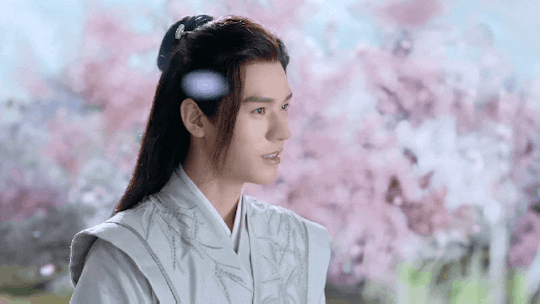

#山河令#word of honor#shan he ling#shl#산하령#배움이 짧아서 모르겠어#ep2#ep 2#조직#이백#월하독작#이백은 인생이 무상하고 걍 술이나 마시며 즐기다 가자가 모토인 사람ㅋㅋ#月下獨酌#온객행 플러팅을 멈추지 않아#Wen kexing never stops flirting 😘#저 제상 플러팅이다#그지꼴을 한거봐#그지도 좀 꽃그지긴 했짘ㅋㅋㅋㅋ#그지꼴을 보고도 좋아하는 온객행#낙신부#Yes I just want to talk about 曹操 曹丕 曹植#because I love 曹植 if he was the king of 魏#Please you must read 三國演義#三國史記 optional#So many 成語 and 漢詩
11 notes
·
View notes
Text
一別經年,別來無恙。
It has been awhile, how are you?
This phrase has two parts the first part is from the poem, 雨霖鈴(yǔ lín líng) by 柳永(liǔ yǒng) in 宋朝(song dynasty). And the later part is from 元曲選·凍蘇秦(yuán qū xuǎn · dòng sū qín). This is such an educated greeting. Well 七爺(Qi ye) is a king no wonder he is a noble man. This short sentence expresses so many meanings. The first part poem goes,
寒蟬淒切 對長亭晚 驟雨初歇 都們帳飲無緒
The cicadas are weeping sadly but the day fades into dark, the rainstorm pauses awhile. Outside of citywall, drinking my farewell away.
放留戀處 蘭舟催發 執手相看淚眼 竟無語凝噎
Unable to leave with brokenheart, the drink hastens my departing. Holding hands, watching your eyes filled with tears. I could not say a word, feeling choked.
念去去 千里煙波 暮靄沈沈楚天濶
I leave far far away, a faraway road of mist, the haze at dusk, the sky is endless.
多情自古傷離別 更那堪冷落清秋節 今宵酒醒何處
It has said, kind heart lingers longer with regrets. How would I bare this cold autumn valediction. Where to sober up from yesterday's drink.
楊柳岸 曉風殘月此去經年 應是良辰好景虛設
On the willow-tide hill. The sinking moon hangs in the wind at dawn. When a few years pass, the beautiful times and good scenery will be useless.
便縱有千種風情 更與何人說
Even if there are thousands and thousands of sceneries, who would I talk to.
This is a poem who is saying farewell to one's lover. The poet is famous because of his writing style that it doesn't have rhyme or rhythm with literacy itself. This modern style has started and grown with his poems. So it's really easy to understand as it describes the poet's situation.
The last part of it goes,
豈知你故人名望,也不問別來無恙。
When status and reputation grew, finally you ask my wellbeing.
Here it is uesed for mocking but if you had watched chinese contents you must have heard of it “別來無恙 (biàn lái wú yàng)” which means “how have you been?” it's literal mean is “recently, no illness?” It is widely used in 漢字文化圈(chinese character culture boundary) as greetings.

So gethering those two phrases, we haven't seen each other for long, how have you been? And also because of the poem, it intends they had parted against their own wills. I'm sure Zhou zishu and Qi ye, they know the meaning, what about Wen kexing?
Please look at Wen kexing's expression, when I have never seen Zhou zishu smiles that big, Wen kexing has weird face expression! 🤭 He must understand and notice where 經年 is from.
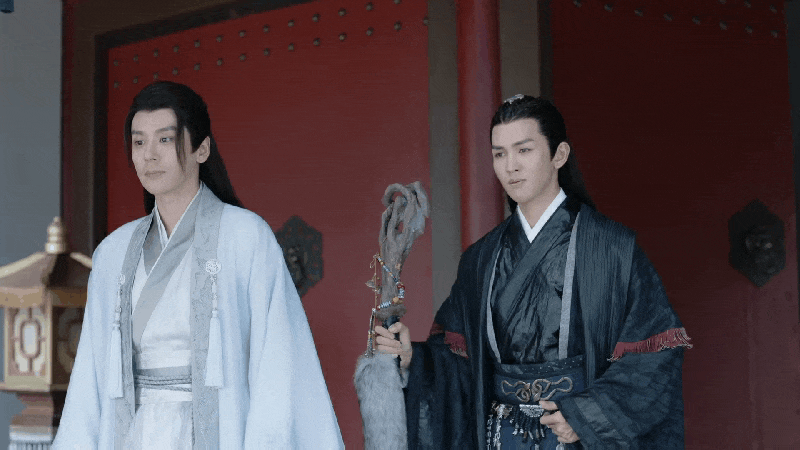
#山河令#word of honor#shan he ling#shl#산하령#배움이 짧아서 모르겠어#七爺#ep 31#ep31#別來無恙#아니 대체 무슨일이 있으셧기에 경년이래..#왕이랑 도련님대화라 그런가#모르겠네#온객행 표정봐 저게 뭐야#대무가 살려줄거니까 반가운데 또 뭔가 애매헤#그 표정 뭔뎈ㅋㅋ#주친놈#온객행 미친놈ㅋㅋ주자서한테 미친놈
14 notes
·
View notes
Text
瓦罐難免井上破,將軍終究陣前亡
The pot cannot be broken except leaving the well, a general is meant to die at the battlefield.
It's from 水滸傳(shuǐ hǔ zhuán; Water Margin) by 施耐庵(Shī nài ān), in 明朝(ming dynasty). It's a story of 108 outlaws in 梁山泊(Liáng Shān pō) which is a part china now it's 濟寧(Jĭ níng), Southern part of china. The story is about how a group of 108 outlaws gather at Mount Liang(梁山) to rabel against the government. Later they are granted amnesty and enlisted by the government to resist the nomadic conquest of the Liao dynasty and other rebels. I have read this when I was young but I don't recall the phrase, as it's not that common phrase where I live. The actual line is,
瓦罐不離井上破,將軍必在陣中亡
A water pot cannot be broken around the well, a general must die in battlefront.
It means, the water pot is used to go to a well, so during it's used around the well it cannot be broken because it's in use, then when a person carries to somewhere the possibility of breaking rise. So Qin wang is saying that the water pot is 秦九霄(Qin jiuxiao), and the well is 晉州(Jin zhou). Qin jiuxiao was meant to die at battlefield.

天子之怒,流血漂櫓;布衣之怒,血濺五步,卻令天下縞素。
The emperor's wrath causes rowing on the blood, The scholar's wrath, the blood flows in five steps. Therefore, the taching was, making the world carefree.
This line is from 唐雎不辱使命(táng jū bù rǔ shǐ mìng; An achievement of embassador 唐雎) by 劉向 撰(liú xiàng zhuàn) in 兩韓(liang jhan)era . It's a dialogue of 秦王(King of Qin) and 唐雎(an embassador of 魏; wei). 唐雎 went to 秦 for negotiate territorial dispute between 秦(qin) and 魏(wei). The actual sentence is, Therefore, make the world carefree.
秦王曰:天子之怒,伏尸百万,流血千里。
Qin wang said: the emperor's wrath, countless bodies cover the land, the blood runs like a river.
唐雎曰:此庸夫之怒也,非士之怒也。若士必怒,伏尸二人,流血五步,天下缟素,今日是也。
Tang ju said: The wrath of normal people and talented people may differ. If a scholar with talent is persecuted, he will surely get angry. Then there will be two bodies and the blood would be five steps long, and every commoner will be mourning. Today, let it be.
The behind story here is that Qin wang wanted to have very wide territory to stop the war, when Wei were already in ruin. So Tang ju was actually on death mission that if he loose any territory of Wei, in anyways he would die by Qin wang either Wei wang. At the end Qin and Wei agreed on a treaty.
I love the time of Qin era which is BC. of Asian history, as my favourite chinese historical great human is 宣太后(Queen Dowager Xuan), So I remember him, 唐雎 is a textbook figure for diplomats for very long time as he didn't loose any territory only with a conversation. Even though Wei didn't last long for that.

晉王(Jin wang) is keep saying his retainers are peices on the chessboard(here it must be 碁;go board). Like whatever he does, there will be death bodies as far as it's not himself, those death doesn't really matter. Then for Zhou zishu is saying if a king doesn't think about the commoners, what meaning is there to be a king? This scene has many metaphorical meanings which can be found in historical drama. Look at thoese quoted sentences, it is definitely a conversation of a king and a noble man.
Jin wang is only thinking about himself, I'm not so sure even what he wants is Zhou zishu. Why he was angry at Zhou zishu is that Zhou zishu didn't say and ask him first to leave. When Zhou zishu had left, he said he just let him go for awhile, Jin wang had never let Zhou zishu go.
It's really shame, Wen kexing never knew Jin wang, I can't even imagine what would he do to Jin wang if he knows all these fiascos.
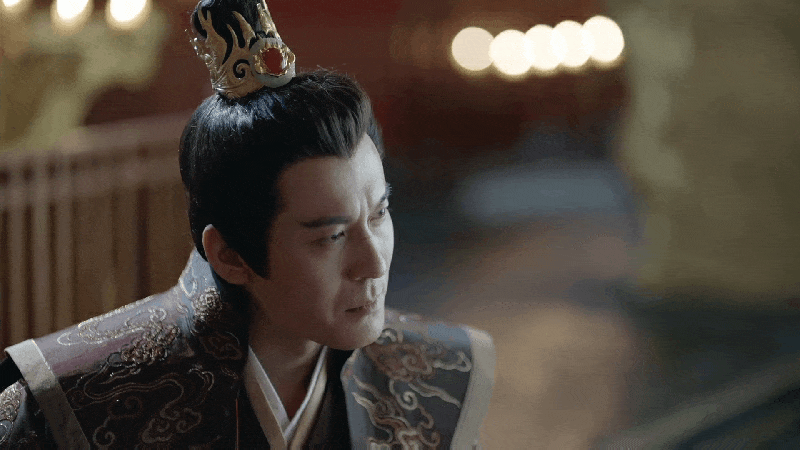
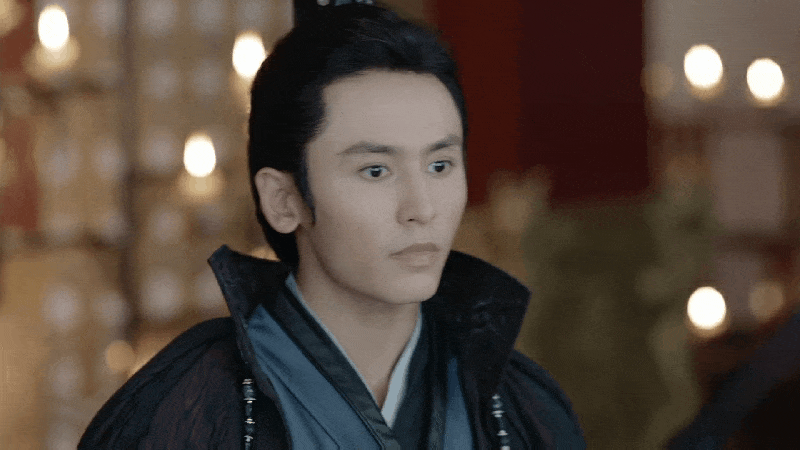
+ Oopsi daisy, it was (晉王)Jin wang not (欽王)qin wang (˵ ͡° ͜ʖ ͡°˵)
#山河令#word of honor#shan he ling#shl#산하령#배움이 짧아서 모르겠어#사서삼경#역사서..#왕이랑 도련님대화라 그런가#인용구가 아주 고급진것이 미쳤네#주자서랑 진왕#너무 맛있다#wenzhou#온주가 맛있는건 진왕때문이야#Jin wang is a spicy for wenzhou#Jin wang makes wenzhou taste better#How noble they are discussing things with old books and phrases#주자서 도련님 모먼트#ep30#ep 30
9 notes
·
View notes
Text
乘興而來 興盡而返
Go when the excitement gethers, come back when the excitement disperses.
This means you do whatever you feels like, there is no rule more important than one's heart telling. Just do it first and worry later. It represents an unconstrained personality and an optimistic and generous attitude toward life.

This idiom is from a story about 王徽之(wáng huī zhī) and 戴逵(dài kuí) in 世說新語·任誕第二十(shì shuō xīn yǔ; A New Account of the Tales of the World, rèn dàn dì èr shí; Rendan chapter 20) by 劉義慶 (liú yì qìng) in 宋朝(song dynasty). But it doesn't really explain the story the story is in 晉書·列傳第五十(jìn shū; A history of Jin liè chuán dì wǔ shí; story chapter 50) by 房玄齡(fáng xuán líng) in 唐朝(tang dynasty).
王徽之 was famous of being free spirit even though he was from a noble family. He was closr to many recluse, 戴逵 was one of them. One snowy night, 王徽之 work up in wee hour. He wondered around then recited 招隱詩(zhāo yǐn shī) by 左思(zuǒ sī).
杖策招隱士 荒塗橫古今
Searching for talented recluses with a cane, the road is rough before and now.
He remembered 戴逵 who was famous for his literal talent. He was good at music and writing poems. 王徽之 suddenly hurried his way to 戴逵 for all night. When he arrived the doorway of 戴逵's house, 王徽之 suddenly headed back home. One of his servants asked him ‘why?’ Then 王徽之 said,
乘興而來 興盡而返
When I remembered I go, when it's done I'm leaving.
For 王徽之, it didn't matter to mert 戴逵. It was more important that he remembered 戴逵 and enjoyed the journey to him and that was enough for him and also 戴逵(he was a recluse, generally avoiding visitors).

Yi baiyi wants to know what happened to hus discipline where Wen kexing doesn't want to know that may reveal his true identity. Both understandable but well they don't know each other's circumstances. 👀
#山河令#word of honor#shan he ling#shl#산하령#woh#배움이 짧아서 모르겠어#ep 19#ep19#승흥이래진흥이귀#마음가는데로#엽백의나 온객행이나 기구하다 기구해
10 notes
·
View notes
Text
周相公可憐則個吧
Zhou darling, Please have some pity on me.
金瓶梅(Qin ping mei) Known as The Plum in the Golden Vase or The Golden Lotus by 笑笑生(Xiao xiao sheng). It's really famous chinese classic novel in 明朝(Ming dynasty). Actually the author can be several people because of the stories various time-era like Shakespeare. It has been prohibited by chinese government for some time because of its explicity but because of that 金瓶梅 has read around chinese culture boundaries. The title shows 3 main heroines in the novel; 潘金蓮(Pan jin lian), 李瓶兒(Li ping'er), and 龐春梅(Pang chun mei).
The main story is the hero; 西門慶(xi men qing) is seducing other's wives and take them as his concubines. It shows lewd and insolent human nature of sexuality. Think why it has been prohibited by main government. I would say it's more like smut, very long and detailed one. The line is a bit different that the actual line is,
娘子可憐小人則個
My darling, please have little bit of pity on me.
西門慶 is telling 潘金蓮 about his horny situation, grabbing her clothes. After than they.. they make love, to be honest It's more like animal mating, more details you may find in the book. 金瓶梅 has translated in many different languages so you may find the translation easily. After this mating or physical aesthetic activity, whatever they had, 潘金蓮 became 西門慶's 5th concubine. Yes 5th. Remember Confucius universe? it's not even a shameful thing at all, I would say rather commom custom.

I don't know if Zhou zishu had read 金瓶梅 or not. His reaction is a bit off isn't it? It's possible he doesn't know what it means with Wen kexing saying things around that it was also his first misfortune to be in this mess, also it is a chance to get to know Zhou zishu better. 으아아아아아아아아아 온객행 이 미친놈ㅋㅋㅋㅋㅋㅋㅋㅋㅋㅋㅋ or it's just me Zhou zishu wouldn't know the meaning and he calling himself 老子. 크아아아아아아아아 쌍방이야 으아아아아아아 감겼네 감겼어 다 넘어갔네에으아아아아아아아아아아아아
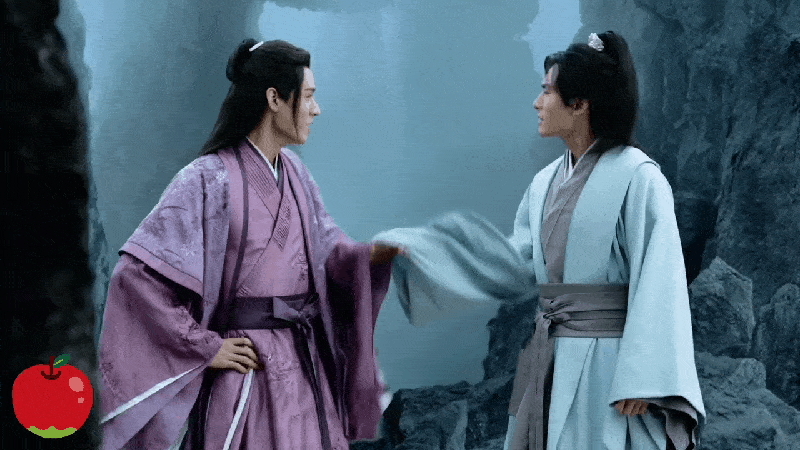
아픈척하는거봨ㅋㅋㅋ요망한 주친놈같으닠ㅋㅋㅋㅋㅋ
#山河令#word of honor#shan he ling#shl#산하령#배움이 짧아서 모르겠어#金瓶梅#금병매#아니..여기서요?#갑자기요?#진짜 미쳤나봐#온객행 이 미친놈#주자서한테 미친놈#주친놈#그 상황에 그런 얘기가 나오네#온객행 플러팅을 멈추지 않아#Wen kexing never stops flirting 😘#크아아아아아아아아아아아#아아아아아아아아아아아아아아아#너무좋아 죽을거 같아#너무 맛있다#wenzhou#사랑을해라#너네 그거 사랑이야#사랑해해해해애애애애#내가 알게 하란말이야#주자서도 감겼네#아니 여기서요?#ep18#ep 18
9 notes
·
View notes
Text
The title and the authour of this poem is unknown. It's from 古詩十九首(gǔ shī shí jiǔ shǒu; 19 old poems). The poem is regared from 漢朝(Han dynasty). Unlike the other old poems most of the poem are lyrics, singing love.
明月何皎皎 照我羅床緯
How bright the full moon! moonlight shines on my bed.
憂愁不能寐 攬衣起徘徊
Sleepless night, roem around holding sleeves.
客行雖云樂 不如早旋歸
Traveling may be pleasant, but would it be better than coming home?
出戶獨徬徨 愁思當告誰
Stray about all alone, who would I tell my worries of you?
引領還入房 淚下沾裳衣
Look faraway in vain, heading back in while tears soak my clothes.
This poem is about a wife worrying her hushand during the night under moonlight. This poem is definitely a lyric.
It changes my understanding of Zhou zishu totally. It was Wen kexing who sings love poems not Zhou zishu!! As how I love his noble moment, he must have known the meaning of that. WHY?? why would you say that??

it's because of Wen kexing's name. How Zhou zishu understood his name with dividing may not be the case here but Wen kexing said one of the old poem from 古詩十九首.
人生天地間 忽如遠行客
Living in this world is like a wanderer who hurries the road.
The common meaning of this poem is just enjoy the drink and live the moment. But some interpretations saying that the speaker of the poem is worrying something. According to the historical aspects it's the ruin of the nation. Think about Wen kexing's situation in ghost valley it's comprehensive.
This is why Zhou zishu saying the love poem❤️ Because it's also from 古詩十九首. Here is Zhou zishu noble moment, I'm sure he must have chosen, picked and selected from the poem and finally he decided to say that. Well they both are under the moonlight. Somehow, Zhou zishu knows Wen kexing leaving. At that moment he says the poem which means he would be waiting for Wen kexing. 으아아아아아아아아烈女怕纏郎!!!!열녀가넘어가버렸어!!!!!!
#山河令#word of honor#shan he ling#shl#산하령#배움이 짧아서 모르겠어#이름하나에 시가 몇개야?#미쳤나봐#주자서 도련님 모먼트#고시십구수#영어에는 量詞가 없고 한국어에서는 그 존재가 희미해져서 뭐라고 말해야할지 모르겠어#주자서도 감겼네#아주 둘이 좋아 죽네..증말..#아주 둘이 죽이 잘맞아#너무좋아 죽을거 같아#ep 25#ep25#너네 그거 사랑이야#쌍방이라고#크아아아아아아아아아아아#망한사랑인줄알았는데 아니었습니다#wenzhou
8 notes
·
View notes
Text
似此星辰非昨夜,爲誰風露立中宵。
The star is not the same as yesterday, Sleepless night passes with wind and dew for whom?
This is poem, 綺懷其十五(qi huai qi shi wu; beautiful mind of 15 years) by 黄景仁 (Huang jing ren) from 清朝 (qing dynasty). The poet had had crush on someone for a long time, tried to express his love in vain. This poem is usually quoted during the night under the moon, drinking and missing their beloved. The poem is,
幾回花下坐吹簫,銀漢紅牆入望遙
How many times have I played the fruit beside flowers, In milky way, the red wall seems so far.
似此星辰非昨夜,爲誰風露立中宵。
The star is not the same as yesterday, Sleepless night passes with wind and dew for whom?
纏綿思盡抽殘繭,宛轉心傷剝後蕉。
Silkwarm reels the threads until its death. Then would the memory gone? All the leaves shaded, then this grief would tern.
三五年時三五月,可憐杯酒不曾消。
15 years 15 months. Sadly this memory cannot be cleared with drink.

There are a few poems which had been quoted by several different people, this poem is one of them. Wen kexing was saying this when he was following Zhou zishu at the riverbank.
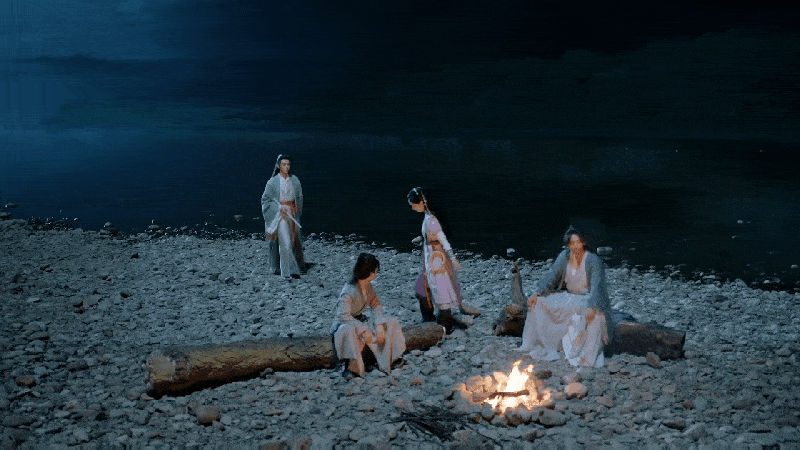
Wen kexing was saying, the stars are not the same as yesterday, there are no time to waste but drink.

The situation has been changed quite a lot compare ep 4 to ep 22. In ep 4, they were both didn't know neither sure about each other's identity. However, in ep 22, they know very well, and Zhou zishu used the poem just right moment as the actual poem was intending, the person who sings the poem having sleepless night. Here, not only Zhou zishu but Gu xiang and Shen shen were having sleepless night.
Well I would say it's one of Zhou zishu's noble moment. He might had not studied as much as the other nobles, Zhou zishu knows and understands old quotes and poems pretty well.
I'm just curious where Wen kexing had studied?? all that flirting 🤔
#山河令#word of honor#shan he ling#shl#산하령#배움이 짧아서 모르겠어#ep 4#ep4#ep 22#ep22#황경인#기회기십오#綺懷其十五#왜자꾸 짝사랑하는 사람이 읊는 시를..#너희 짝사랑 아니잖아#너네 그거 사랑이야#쌍방이라고#속시끄러운사람 많네#오늘의 별은 어제와 다른데 누구를 위해 한밤중에 바람과 이슬을 맞으며 깨어있나?#진짜 미쳤다#미쳤나봐#미쳤네#주자서도 감겼네#아주 둘이 좋아 죽네..증말..#아주 절절하네#아주 둘이 죽이 잘맞아#주자서 도련님 모먼트#있는집 자식티를 이렇게 낸다#wenzhou
7 notes
·
View notes
Text
世上無難事,庸人自擾之。
There's nothing difficult in this word, why people making this bizarre out of it?
It is from the book; 新唐書(xin tang shu), 陸象先傳 (lu xiang xian zhuan) part. The book is a history book in 唐朝(Tang dynasty). But the book itself has quite many suspicions because of many differences by cross-referencing not only chinese history but surrounding countries.
陸象先(lu xiang xian) is name who was a liese of 睿宗(李但; rui zong), he was very honest and incorruptible. Therefore the king listened to him often. He was also a district magistrate, he was very generous that he didn't strictly punish the criminals unless necessary. The district, that he reigned, didn't have much trouble compare to other districts.
Unfortunately, one of his subordinate committed crime. 陸象先 punished him as generously as he did to other criminals. Then the other lieses were saying he is being partial. He said to those people,
世上本無事,庸人自擾之。
There was nothing happend, why poeple worries about it.
The world flows by its own rules, it could be something or nothing, no one knows. Don't need to be worry about something which doesn't matter in the world.

Zhou zishu seems trying to make the happening with Wen kexing as nothing, it doesn't seem working though. '걱정도 팔자'란 뜻인데 이럴때 한자문화권인게 실감난다 이걸 무슨 수로 번역해ㅋㅋ
In episode 12, Wen kexing also saying this to Chengling. Just give away 琉璃甲 to 五湖盟.

#山河令#word of honor#shan he ling#shl#zhou zishu#wen kexing#산하령#wenzhou#주자서#당조네#육상선전#신당서#육상선이 이름이 육상선인지 아니면 육씨 상선인지 모르겠네#배움이 짧아서 모르겠어#걱정도 팔자#주자서도 감겼네#어려운일 없다면서 그렇게 퍼마실 일이냐고#술마시는 주자서#drinking Zhou zishu#飲酒周#飲酒鬼#ep 10#ep12#ep 12
7 notes
·
View notes
Text
有口難言
The first one is from a peom, 醉睡者(zuì shuì zhě; a drunk sleeping person) by 蘇東坡(sū dōng pō) in 宋朝(song dynasty).
有道难行不如醉, 有口难言不如睡.
if it's difficult to act then be drunk, if it's difficult to say then just sleep.
先生醉卧此石间, 万古无人知此意.
I lie on the gravels, the reason why, no one would know.
This is as the title said, about a person who's drunk. The poet was talented but hapless. Mostly lamenting about his situation. Its literal meaning is, I have mouth but difficult to say.
In here, I think Wen kexing told that idiom not only to Zhao jing but himself as well, just the place where they were, has changed. Wen kexing was difficult to say before but now it is Zhao jing.

眾叛親離
This is from 詩經(shi jing; Classics of poem), it is in one of the chapter, 國風(guo feng). Also it has 160 peaces of poem, and this is from 邶風(Bei feng; bei nation's fork song). The title is 擊鼓(ji gu; Drumming). It was also on episode 25 However, it is not the poem but interpretation of the poem by 鄭玄(zhèng xuán).
于嗟闊兮 不我活兮
Oh, we are parted, we aren't together.
【鄭玄 箋】 箋雲:州籲阻兵安忍,阻兵無眾,安忍無親,眾叛親離。
鄭玄 said, 州吁(zhōu xū) became unruly with military forces, doing massacre. Because of that no one was close to and followed. The speaker of the poem is a loosen remnant, he just want to go back home. So 州吁 doesn't have much people to fight for him. The followers betrayed and the close friends had left.
Zhao jing was cruel to his follwers, no wonder nobody comes to save him.

孤立無援
This is used very commonly but I couldn't find its origin. It seems it's not really old one like from before century but it has been used widely spoken.
Its literal meaning is, stand alone without any help. That's the meaning of it and it is used for. It also intends that there's no one can help or there will be any help in the future. It can describe one's situation or place, even location. Loneliness it is.
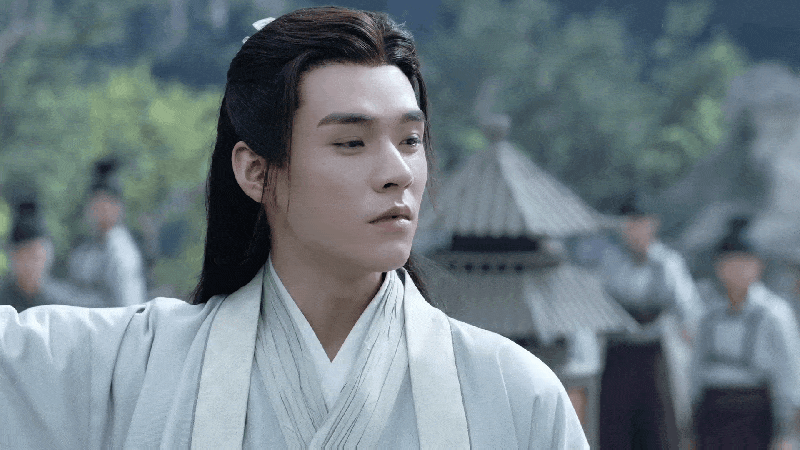
#山河令#word of honor#shan he ling#shl#산하령#배움이 짧아서 모르겠어#ep 33#ep33#詩經#시경 정현전 해석#우와 무슨일이야#온객행이 무슨책 읽었는지 티나는거네#an eye for an eye and a tooth for a tooth.#this is also there but well it's from Code of Hammurabi
5 notes
·
View notes
Text
端的是腰似韌柳 身若飛絮
The waist looks like trimed willow branches, the body looks like fluttered willow flowers.
From 徐再思 (Xu zaixi) 折桂令·春情 (zhe gui ling • cun qing). This poem is talking about love between man and woman. Spring affair often means love making in many different contexts and this poem named right after 春情 (spring affair).

The rest is,
平生不會相思,才會相思,便害相思。
I didn't know love for my whole life, once I love, I got love sick.
身似浮雲,心如飛絮,氣若遊絲。
Your body floats like clouds, your heart flutters like willow branches, you breath like spring haze.
空一縷余香在此,盼千金遊子何之。
There is only slight of silliage left, where to, my precious?
證候來時,正是何時?燈半昏時,月半明時。
My love gets worse, when would it be? When the lamp light is gone the half, When the moonlight is bright only the half.

Wen kexing's flirting is seriously too difficult to understand with my chinese literature knowledge limitations. I don't know how Wen kexing learnt all those poems and idioms which really doesn't follow any historical period. Some time it's from BC., sometimes Tang or Song dynasties..🥲
#山河令#word of honor#shan he ling#shl#산하령#ep 7#Xu zaixi#春情#이시는 진짜 너무 대놓고..#배움이 짧아서 모르겠어#춘정#서재사#아니 온객행 뭐야#어떻게 아는거야?#이런데 어떻게 안파?#떠먹여줌#온객행 미친놈ㅋㅋ주자서한테 미친놈#Wen kexing never stops flirting 😘
5 notes
·
View notes
Text
天上浮雲似白衣,斯須改幻爲蒼狗。
The clouds up the sky, it looks white clothes. Suddeny it changed to black dog.
古往今來共一時,人生萬事無不有。
How people live, it's the same before and now. In this world, anything can happen, so don't be determined.
This is a poem from 杜甫(Du fu), 可嘆 ; Lamentation. He wrote this for comforting his friend, who's wife has gone away. The situation is a bit different that this poem has its own story.. not my place to tell. Anyway it means, no time to waste, we should get along as we never know what may happen in our lives.
6 notes
·
View notes
Text
送君千里,終須一別
Even you send me off millon metres, we would part at the end.
The origin of this sentence is from 戲文·殺狗記 (xì wén · shā gǒu jì) by 徐田臣(xú tián chén; actually his name is 2 characters I don't know why and how it became 3? and the sound is also 田臣; jin) in 明朝 (Ming dynasty). Originally it was a play by 蕭德祥 (xiāo dé xiáng), but Xu jin had reorganised as an epic.
The story line is about a murder in town, that brother tried to solve and while doing so, they grew brotherly affection. This story isn't that famous, but the main heroes are two boys so I have seen a few who ships this.
This is also from 水滸傳(shuǐ hǔ chuán) there's also very brotherly brothers trying send his brother off to far far away. This quote is usually used for who leave to ask the senders not to tiring themselves. And also they don't know exactly when they would meet again.
Zhou zishu must have tried to hide his condition so that he hurries his senders; Qi ye, Da wu and Zhang chengling, go. If it wasn't Chengling, they might have not known.

Since ep 30, I have become very skeptical about the relationship between Zhou zishu and Wen kexing. Zhou zishu really doesn't show and say about his emotions much. In ep 2, he looked really free, free of any charges even relaxed. He was saying he wouldn't swap the place with the king. Then the circumstances had kept binding around him. When he had left 天窗(tian chuang), the only wish he had was to look around and wander around to see what he only had heard of.
특별히 캐릭터중에 주자서를 제일 좋아하는건 아닌데 아무래도 나는 제3자로 캐릭터들의 이야기를 듣는 입장이라 그런가 아무리 생각해봐도 이게 해피엔딩인지 정말 모르겠다. 제작진 말로는 일부러 주자서를 더 괴롭혔다는데 진짜 괴롭혔다는 말이 너무 어울릴 정도로 외롭고 슬픈 서사야. 차라리 아무도 모르게 어디서 죽었으면 좀 나았을까 생각해보고, 주자서를 마냥 기다릴 온객행 생각하면 정말 슬픈데, 주자서가 죽은지 모르면 또 마냥 기다리며 잘 살 수있을것도 같고.. 근데 또 알면 따라 죽을것같기도하고.. 주자서는 온객행이 죽어도 살아갈게 분명하지만, 온객행은 주자서 없으면 안 살것같은 그런 믿음이 있어 나에겤ㅋㅋㅋㅋ 쿠키영상 보기 전까지 진짜 오랜만에 드라마 보다 펑펑 울었네 니네 진짜 주자서한테 그러는거 아니다. 또 주자서 혼자 남았는줄 알았다고.. 차라리 지옥 18층 기름솥에 들어가 튀겨질 지언정 끝까지 외롭고 싶지 않났을텐데 난 정말 또 혼자 남는건줄 알고 과몰입했다고오오ㅠㅠㅠㅠㅠㅜ주자서좀 놔줘라아아아아아 나쁜놈들 온객행 니가 제일 나빠아아아아아아아
He is stuck in the snowy mountain who knows how long. I'm glad Wen kexing and Zhou zishu both alive at the end, but still I can't get rid of this thoughts, if that was really what Zhou zishu wanted. It would had been okay if Zhou zishu died then Wen kexing would not live. Zhou zishu must live without Wen kexing, but Wen kexing must NOT live without Zhou zishu. Is this really a happy ending? for who? Zhou zishu should have died as a begger, care-free and liberated. He must have been just happy to be fried in hell. Before I watched the actual ending I had felt so helpless that it was only Zhou zishu who survived. How ironic that he had been running away from living, after loosing his beloved. He surviced again. All the memories and affections would become a burden.

#山河令#word of honor#shan he ling#shl#산하령#배움이 짧아서 모르겠어#ep 36#ep36#There were not much in ep33~35#I tried to search but they are mostly other characters#주자서야 주자서야#주자서 좀 놔줘라#Let Zhou go#Zhou zishu need to let go himself the most#This isn't the ending I have expected#My goal was get to know Wen kexing's flirting#But it seems I have come so far as I feel go further#If there's going to be any left though
4 notes
·
View notes
Text
何至於斯?
how we are here?
It's from an epic about fisherman and 屈原(qū yuán; BC. 343 ? ~ BC. 277 ?), title is 漁父辭(yú fù cí). This story came up in episode 3 and 7. Where Gu xiang asked Wen kexing who is 屈原 and Chao weining told Gu xiang incorrect version of 屈原's poem.And Gu xiang askes Wen kexing who is Qu yuan.

And in episode 3, you may find it below 👇

This poem has story and very famous as it has quoted in many different media in 漢字文化圈(chinese charater cultur boundaries). Historically he was a talented politician. As his sir name 屈(Qu) was the same as king's sir name in 楚(chu) so there are possibility he was a royal blood. When he lived there were 7 nations (齊; qí 楚; chǔ 燕; yàn 趙; zhào 魏; wèi 韓; hán 秦; qín) that wanted to unite china. 秦,楚,齊 were the most powerful countries, later 秦 united.
Actually you don't need to know these to understand the story. It would be a little helpful why it has used and may find hidden intension. Because when I first noticed 漁父辭, I somehow expected it would be a sad-ending. Because of the chaos around the nations, he followed his king in 楚, but his king was stupid and the other vassals hated and begrudged him of talent. With the chaotic status of 楚, his king died of not listening to 屈原. Later son of his king banished him for the death.
屈原 was still faithful for his country 楚, and had kept trying to save 楚, but no one listened. Finally, he tried suicide to tell for his king to listen and save the country. Unfortunately he didn't and 楚 had fallen. Funny that who had united those 7 nations, his grand mother was from 楚, who was 宣太后(xuān tài hòu; the queen of the Great).
This poem shows a person who had tried to save his most value, but there was no one to listen. The only thing he could do for them to listen was suicide. Sad thing is that even he died no one had listend and his precious nation fell. 屈原 is a model of loyalty. The story goes,
屈原旣放, 游於江潭, 行吟澤畔, 顔色憔悴, 形容枯槁。
屈原 had banished from 楚, wandering around watersides, talking to himself, lanky and futile.
漁父見而問之曰,子非三閭大夫與?何故至於斯?
A fisherman noticed him and asked, Were you not the dignitary of 楚? What had happened to be here at this point?
Then the fisher man was listening to lamenting of 屈原. 屈原 was saying how he could be suited with renegades and became a traitor. He could not forsake his fidelity. After the conversation, the fisher man sings based on 屈原's words.

滄浪之水淸兮 可以濯吾纓
if the water is clean I would wash my hat
滄浪之水濁兮 可以濯吾足
if the water is tuebid, I would wash my feet.
which means, whatever the water is, if it's clean he would follow if it is not he wouldn't associate. And this was on episode 3, where Zhou zishu had met Wen kexing again in the warterside. So I guess, Wen kexing might have known Zhou zishu's identity all along.
I guess Wen kexing intended as, what had happened to 天窗(tian chuang)? had something happend? that's why you're wondering around like that? Is there something you wouldn't bare anymore that's why you left?? and because of that Zhou zishu started to listen and be generous about Wen kexing. And the situation is rather similar with Zhou zishu and 屈原. So, who knows 漁父辭 may have guessed the tragic ending of the character.

This 漁父辭 reminds of Zhou zishu's story, there are parts alike to 屈原. The difference could be how a person can be active and passive. The story between Jin wang and Zhou zishu would had been similar to 屈原 and 楚王. It's really shame I would never know 🥲At some point I even think it would had been better if Zhou zishu died as a begger traveling where he wanted to do and go. The love and respect he got from people around aren't what they are but burdens. The affection from Wen kexing is too violent sometimes.

#山河令#word of honor#shan he ling#shl#산하령#배움이 짧아서 모르겠어#어부사#굴원#屈原#漁父#굴원이랑 주자서 스토리가 정말 너무 비슷해#어떻게든 사계산장 지켜보겠다고 고군분투했는데#결국 아무도 주자서생각 안해줌#그러게 대화를 좀 해..#혼자서 그러지 말고#제발 그 짐을 덜어 나누자#그걸 왜 혼자 다 지고있어 미련하게#ep32#ep 32#30화 넘어가면 자꾸 주자서맘이됨#우리 주자서 좀 생각해줘라#니네 목숨 다 필요 없다고 좀 놔줘라#짐에서 벗어나려고 칠규삼추정까지 박았는데#대체 왜 놔주질 않냐 차라리 그지로 죽는게 낫지#주자서학대극#주자서 좀 놔줘라#Let Zhou go#ep3#ep7
4 notes
·
View notes
Text
This is from 菜根譚(Caigentan) chapter 129 by 洪自誠 (Hong Zicheng) in 明朝(Ming dynasty). This compilation of aphorisms eclectically combines elements from the Three teachings; Confucianism, Daoism and Buddhism.
害人之心不可有,防人之心不可無。 此戒疎於慮也。
Thinking of harming the others, not helping the other are wrong. It is a warning against negligence in thinking.
寧受人之欺,毋逆人之詐。此警傷於察也。
It is better to be deceived than deceiving the others. It is a warning against too much caring.
二語竝存,精明而渾厚矣。
If you hold these two words together, your thoughts will deepen and thicken.
The first part is saying that do not being an assailant either a victim. Being an assaliant and a victim is relative. If there is no assaliant, there will be no victim. So it means be cautious of actions, to be vigilant and defensive.
Then the second part explains If you are obsessed with defensive consciousness, you become suspicious of all people.

Here Zhou zishu says this to 成嶺(Chengling) that they should be cautious about their situation. Then Chengling says to him that Wen kexing seems a good person. I guess Chengling knows the idiom that it has two parts. Zhou zishu said the first part to be cautious, then Chengling is saying the later; obsessed of being cautious isn't good either.
Chengling mentioned that his oldest brother is good at martial arts and his other older brother is good at literature, so he must be somehow influenced by his brothers. He also knew the 史記(Records of the Grand Historian) as his family is not a noble but he studied those that is not common in jianghu I would say. In Wuxia world, Taoism and Buddhism can be very common but Confucianism is something they wouldn't care. Wuxia is not exactly aming to become an official of government. Is it?

#山河令#word of honor#shan he ling#shl#산하령#배움이 짧아서 모르겠어#채근담#남을해치려는마음도 남을구하지않으려는 마음도 없어야한다 이것은 생각의 소홀함을 경계하는 말이다#남에게 속을지라도 남을 속이지 않아야한다 이것은 살핌의 지나침을 경계하는 말이다#장성령 진짜 도련님이네 그래도 다 져준다#장옥삼 정말 아들하나 잘키웠네#성령이가 저런데 성령이 형들은 또 얼마나 대단했을거야 정말 크흡#ep3#ep 3
4 notes
·
View notes
Text
豈不聞傾蓋如故 百頭如新
Haven't you heard, a friend, who met just now, is like an old friend? A friend knowing each other until their hair turns white.
「獄中上梁王書」 “有白頭如新 傾蓋如故” An appeal from the prizon by Zou yang (鄒陽); An old Friend, who has been friend until their hair turns white, and a new friend are the same. Whoever understands one better, would be one's old friend.
Even though you met the person late, if that person understands me better than anyone. Why would it matter how long had been friends?
How would Wen kexing know that Zhou zishu is a person like him? I think Wen kexing already knew who Zhou zishu was ever since He saw 流雲九宮步(liu yun jiu gong bu).
#山河令#word of honor#shan he ling#shl#산하령#ep 4#객잔에서 나오는 주자서와 장성령을 보며 온객행이 하는 얘기#오래 만났던 방금 만났던 마음맞는 친구 찾기 어렵단 얘기#온객행은 어떻게 알았던걸까?#주서가 주자사인거 이미 알고 있는거같음#어려운 고서를 많이 가져다 썼네#내 배움이 짧아서 뭔소린지 몰랐는데#중국놈들 쓸데없는 고사성어 엄청많네#배움이 짧아서 모르겠어
4 notes
·
View notes